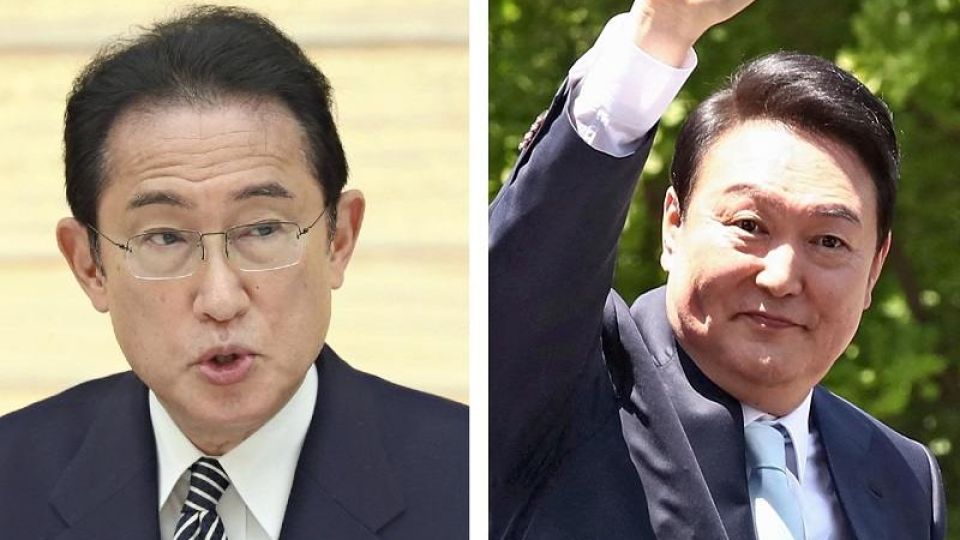June 10, 2022
TOKYO – The percentages of respondents in Japan and South Korea who expect the bilateral relationship to “improve” in the future has surged, according to the latest joint survey conducted by The Yomiuri Shimbun and The Korea Times.
In the May 20-24 survey, 31% of respondents in Japan expected improvement, up from 14% in the previous survey in 2021, while the figure was 53% in South Korea, up from 29% in the previous survey.
The results of the latest survey indicated that respondents reacted favorably to South Korean President Yoon Suk-yeol’s eagerness to improve Japan-South Korea relations, which have been perceived as the “worst in the postwar era.” Yoon took office on May 10.
In the survey, respondents were asked about the prospects for the two countries’ relationship “under the Yoon administration.”
The percentage of respondents in Japan who said the relationship would “improve” exceeded 30% for the first time since 2011. On the South Korean side, the percentage of those with a similar view was the second highest after the 56% logged in the 2017 survey, which was conducted immediately after the launch of the previous administration, led by President Moon Jae-in. It is unusual for expectations for improvement in the bilateral relationship to rise significantly in both Japan and South Korea at the same time.
In South Korea, the percentage of pollees who expected the bilateral relationship to improve was higher than the 35% who said relations would remain unchanged, a figure that was down from 58% in the previous survey.

In Japan, a 61% majority of respondents still perceived that the relationship would remain unchanged, but this was a drop from the 73% who held that view in the previous survey.
When respondents were asked whether they thought their own country should move closer to the other country on historical issues, such as wartime requisitioned workers from the Korean Peninsula and former comfort women, 58% of respondents in Japan said they did not think so, down from 59% in the previous survey, while 81% in South Korea gave the same answer, up from 79%.
Following Russia’s invasion of Ukraine, 60% of respondents in Japan and 59% in South Korea think there is a possibility that their country could be attacked by another country in the near future. The percentages of those who think that China could carry out a military invasion of Taiwan reached 73% in both countries.
To counter China and Russia, 67% of respondents in Japan and 77% in South Korea said they think that their countries should work together with the United States. The survey showed that respondents in both countries shared a sense of crisis in the security environment and awareness of the importance of cooperation with Washington.
The survey was conducted by phone on voters 18 or older in the two countries, with responses given by 1,019 people in Japan and 1,000 in South Korea.

